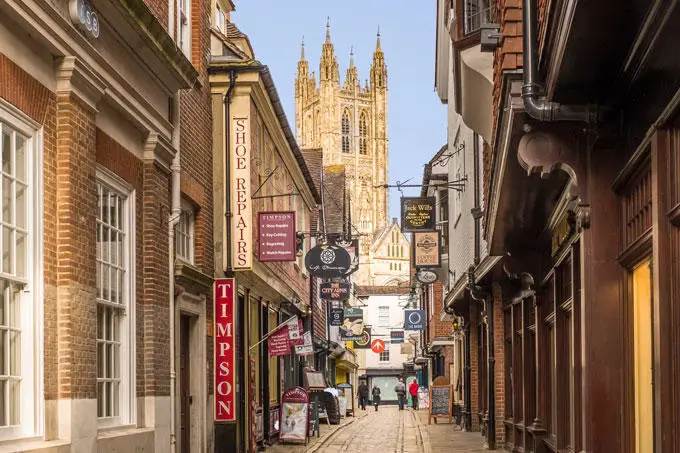University research explores how we experience being human
8 Nov 2023
Academics at Canterbury Christ Church University are undertaking research that investigates the human experience, from how the space we are in affects how we feel and behave, to how we work through and accept conflicts of personal identity.
The University is this year’s South East hub for the Being Human Festival, the UK’s national festival of the humanities, which brings together universities, museums, galleries, creative organisations, and community groups across the UK to showcase humanities research.
Throughout the Festival in November, University academics will be running public events that explore the theme of ‘Women Making Sense’, using their different academic perspectives to look at how women experience the world and how they express this.
Dr Astrid Stilma is a Senior Lecturer in Early Modern Literature and History. Her research explores the religious and political conflicts of the 16th and 17th centuries, and the ways in which these are represented in the literature of the time, particularly with the concepts of tyranny and rebellion.
She will be leading a workshop for the Being Human Festival that focuses on a hugely influential but often forgotten woman writer from the 1600s – Aphra Behn. Taking place in the 12th century church in Canterbury, St Paul's Without Walls, where Aphra’s parents were married, the workshop will look at how Aphra reconciles internal conflicts between her own identity and faith in her poem ‘A Paraphrase on the Lord’s Prayer’, through performative readings, creative writing, and discussion.
Aphra Behn was an exceptional woman for her time. She was the first professional woman writer in English, and one of the most significant women writers of any era. Her work is often regarded as irreverent, even racy; as a woman and a writer, Aphra was considered deeply scandalous by later audiences. However, this poem is very different. Aphra uses her poem to make sense of her deep faith and its role in her life, especially with regard to aspects of religion which did not fit well with who she was, such submission to authority, keeping quiet, and following without question. The poem works through these internal conflicts, as Aphra interprets the Lord’s Prayer and reflects on how her life adheres or deviates from scripture, and ultimately accepts herself as a flawed human being.
Dr Sonia Overall, Course Director MA Creative and Critical Writing, is a published writer and psychogeographer. Her research draws strongly on walking practices, psychogeography and place-based methods.
As part of the Being Human festival, Dr Overall is running a Walking and Talking Texts event, discussing works from women writers making sense of place, movement and public spaces, while walking through historic streets in Canterbury.
This will be followed by a creative writing workshop exploring the themes from the Walking and Talking Texts and the chance to try some of the techniques used by the writers.
Psychogeography looks at how place affects our thoughts, feelings and behaviour, and how we use spaces to influence how people act. How spaces are arranged can directly control how we move through them, for example, through use of signage, but there can also be a more subconscious psychological impact – places can feel welcoming or prohibitive - which changes how we interact with those spaces.

Dr Overall is interested in how women in particular experience place. Access to spaces can be restricted in different ways for different identities – disability, race, religion – but how women are expected to behave in public has always been contentious. In literature, women often express discomfort or a feeling of ‘not belonging’ in public spaces, using writing to illustrate how the external world influences or disrupts their internal life.
The Walking and Talking Texts event will explore this psychological effect in real time, looking at examples of women’s writing exploring their relationship to place in different physical surroundings, from the busy high street to quiet city gardens, and discovering how this impacts discussion and interpretation of the texts.
The Being Human festival highlights how the humanities, across all their vastly different disciplines and approaches, are effectively investigating the same thing – the nature of being human. From the conflicts of public and personal identity to the relationship between our internal and external spaces, research at Canterbury Christ Church University is also exploring this central core of our existence - what it is like to be a human, how we experience the world, and how we make sense of where we are placed in it.
Being Human Festival is the UK’s national festival of the humanities. The festival is led by the School of Advanced Study, University of London, with generous support from Research England, in partnership with the Arts and Humanities Research Council and the British Academy.
Did you find this page useful?